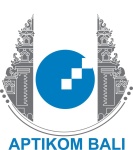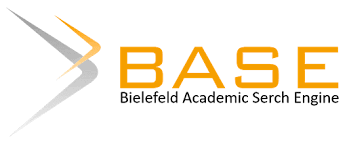PENGEMBANGAN JOGGING TRACK BERBASIS SUBAK: INOVASI EKOWISATA UNTUK PEMBERDAYAAN KEWIRAUSAHAAN DESA
DOI:
https://doi.org/10.59819/sewagati.v4i1.4764Keywords:
Subak, ekowisata, jogging track, kewirausahaan desa.Abstract
This community service program aims to develop a local culture-based ecotourism model through the development of a jogging track integrated with the traditional Subak irrigation system. The activity was carried out in Bongkasa-Badung village, with a participatory approach and needs-based training methods. This program is not only directed at planning physical infrastructure development, but also at strengthening entrepreneurial capacity in a sustainable manner. There are seven strategic steps implemented, starting from initial observation, social mapping, to community training and coaching. The results of the community service show that the Subak jogging track can be an alternative ecotourism that is educational, environmentally friendly, and oriented towards preserving culture. Economically, various new business activities have emerged such as healthy stalls, farmers selling local products, and community-based local product management (tuak drinks). The main challenges in implementation are limited infrastructure and coordination between institutions. However, through the right communication strategy and contextual training, these obstacles can be overcome gradually. This community service provides practical implications for the development of locality-based tourism villages and is worthy of being replicated in areas with similar characteristics.
Downloads
References
Artha, B., & Prasetyo, W. (2019). Peran Pemerintah Desa Terhadap Pembangunan Kewirausahaan Pertanian Sebagai Sarana Untuk Meningkatkan Kesejahteraan Masyarakat. Jurnal Penelitian Agrisamudra, 6(2), 82-94.
Dimastari, N. N., & Ariawan, P. (2023). Peningkatan Ekonomi Masyarakat melalui Pengelolaan Subak Kredung Yang Lebih Kompetitif. Jurnal PkM (Pengabdian kepada Masyarakat), 6(3), 299-303.
Febriantini, K. T., Indriani, N. K., Kusuma, B. O., & Yuniari, N. K. Y. (2019). Sinergitas pemerintah desa dan kelembagaan lokal subak dalam mewujudkan pembangunan berkelanjutan berbasis subak sebagai warisan budaya dunia (Studi kasus: Subak Jatiluwih, Kabupaten Tabanan). Spirit Publik: Jurnal Administrasi Publik, 14(2), 189-202.
Herawati, N. (2015). Pengembangan pariwisata berkelanjutan berbasis Subak sebagai bagian warisan budaya dunia Unesco di Desa Mengesta Kabupaten Tabanan. Jumpa, 2(1), 79-103.
Junarto, R., & Salim, M. N. (2022). Strategi membangun kemandirian dan kesejahteraan masyarakat desa: Bukti dari gunung Sewu Geopark, Indonesia. Tunas Agraria, 5(2), 142-164.
Mustanir, A. (2019). Pemberdayaan masyarakat kewirausahaan.
Novianti, K. D. P., Chaerunnisa, I. U., Natalia, S. A. M. D. K., Sari, P. Y. W., & Sudarmini, N. M. (2023). Pendampingan Pengembangan Potensi Wisata Sudamala Jogging Track bagi Perangkat Desa Sukawati, Gianyar, Bali. MALLOMO: Journal of Community Service, 4(1), 132-138.
Palupiningtyas, D., & Mistriani, N. (2020). Penerapan kewirausahaan berbasis pariwisata bagi masyarakat. JCES (Journal of Character Education Society), 3(2), 311-319.
Purnomo, A. (2022). Desa Wirausaha sebagai Eskalasi Ekonomi Desa berbasis Kewirausahaan.
Rijasa, M. M., Silvi, N. P., Putri, I. G. A. P. T., Putri, C. I. A. V. N., & Setyaningsih, N. P. A. (2023). Pengembangan Desa Wisata Darmasaba Melalui Perancangan Ekowisata Jalan Usaha Tani dan DAM Tanah Putih. Aksiologiya: Jurnal Pengabdian Kepada Masyarakat, 7(2).
Sudika, I. G. M., & Sukanti, N. K. (2022). Penataan dan promosi ekowisata subak uma lambing di desa sibang kaja kecamatan abiansemal kabupaten badung. J-ABDI: Jurnal Pengabdian kepada Masyarakat, 1(10), 2525-2532.
Wibowo, D. S., & Indah, A. N. (2021). Seminar dan Pelatihan Kewirausahaan Untuk Mewujudkan Masyarakat Yang Mandiri dan Unggul Dalam Ekonomi. JIWAKERTA: Jurnal Ilmiah Wawasan Kuliah Kerja Nyata, 2(1), 28-33.
Downloads
Published
Issue
Section
License
Copyright (c) 2025 Putu Diah Asrida, I Gede Agus Adi Saputra

This work is licensed under a Creative Commons Attribution-ShareAlike 4.0 International License.
Authors who publish with the Jurnal Sewagti agree to the following terms:
1. Authors retain copyright and grant the journal the right of first publication with the work simultaneously licensed under a Creative Commons Attribution License (CC BY-SA 4.0) that allows others to share the work with an acknowledgment of the work's authorship and initial publication in this journal.
2. Authors are able to enter into separate, additional contractual arrangements for the non-exclusive distribution of the journal's published version of the work (e.g., post it to an institutional repository or publish it in a book), with an acknowledgment of its initial publication in this journal.
3. Authors are permitted and encouraged to post their work online (e.g., in institutional repositories or on their website) prior to and during the submission process, as it can lead to productive exchanges, as well as earlier and greater citation of published work. (See The Effect of Open Access) .




















